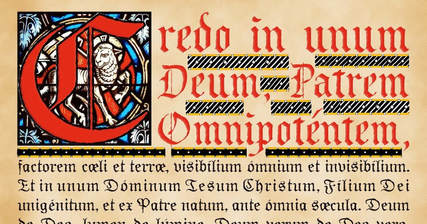 Mark 5:21-43 One of the synagogue officials came up, Jairus by name, and seeing him, fell at his feet and pleaded with him earnestly. (Mark 5:22) This morning’s gospel could be interpreted in different ways. For example, the connection which the lectionary makes between the reading from the book of Wisdom and Mark 5 highlights the fact the death and illness are not part of God’s design for creation, and that as a consequence God destroys these conditions every time he meets them in Christ. Instead, I would like to reflect with you on a broader theme which runs through the whole story; the theme of faith in the Lord Jesus. Mark introduces two characters who approach Jesus to find healing; their situations are desperate and it would be easy to think that they both have lost all hope and so they go to Jesus thinking “Well, what do I have to lose!” But if we look closely to the text we see that this is not the case; and instead each character makes a statement of faith in Christ as soon as they approach the Lord. ‘Do come and lay your hands on her to make her better and save her life.’ (Mark 5:23) says Jairus; and ‘If I can touch even his clothes, I shall be well again.’ (Mark 5:28) says the woman to herself. For both Jairus and the woman faith is manifested by their words of trust in Jesus and by their actions. In other words their faith is manifested by the choice of approaching the Lord and trying to find healing through him. So, both characters give us an idea of what faith is; an assent and affirmation, a willing and intentional “yes” to the person of Jesus Christ and to his ministry. As you probably know, I have never been overly fond of evangelical hymns, but there is one which fits this story very well. It sings, ‘O happy day that fixed my choice on Thee my Saviour and my God’ and indeed, this was a happy day for Jairus and the woman who, by opening the doors to Christ, by willingly and intentionally placing their faith in the Lord Jesus, find in him more than they could have ever hoped for. Certainly, their assent is somehow costly in both cases. Jairus, a synagogue official, has to humble himself before a man who was often at odds with the Jewish establishment, and he must face the peer pressure of more orthodox groups. The woman with the haemorrhage must brave rejection and insults from the crowds who knew her to be ritually unclean due to her illness. Yet, whatever the personal cost they faced at the time, by intentionally placing their faith in the Lord both characters are soon rewarded for their decision; for their choice, as it were. So, how is it with us? Do we express our faith in similar terms? And when is the last time we have knelt and we have made and affirmation of faith like Jairus' and the woman's? When was the last time we said in prayer “Jesus, I trust in you”? In the old rite for the Mass, and in the Book of Common Prayer, when the congregation stands to say or sing the Creed, they begin with the words “I believe in one God”. In this church we say “We believe in one God”. Yet, when we say the Creed, Sunday after Sunday, we often blurt out the words without really thinking about what we are actually doing. The Creed is a powerful affirmation of faith, which should be a weekly renewal of our intentional “yes” to Christ… We stand we assume the posture of those who are ready and willing, and we reaffirm together both our individual and our corporate faith; we place our faith squarely and solely again in the one true God. In a sense, we could say, through the Creed we make a statement of faith much in the same way Jairus and the woman did in the gospel. If we do this in all honesty our faith will be genuinely revived, and we will find in God more than we could have ever hoped for. Each Sunday then, would be the “happy day that fixed our choice on our Saviour and our God”.
0 Comments
Your comment will be posted after it is approved.
Leave a Reply. |
Archives
June 2020
Categories
All
|
 RSS Feed
RSS Feed


